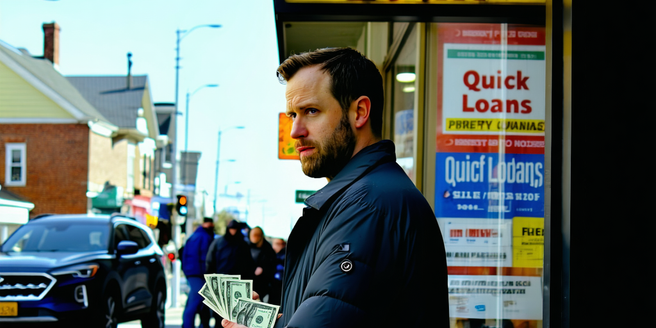
Understanding Bad Credit Loans
Bad credit loans are specifically designed for individuals who have a less-than-perfect credit history. Traditional lenders often hesitate to provide loans to those with poor credit scores due to the perceived risk of default. However, bad credit loans offer a solution by catering to this underserved market. These loans typically come with higher interest rates to offset the greater risk taken by the lender. Despite this downside, they provide an opportunity for individuals to improve their credit score by making timely payments. Lenders offering such loans might not always require a credit check, focusing instead on other factors like income and employment status. This means that people with bad credit can access needed funds, although it comes at a higher long-term cost due to increased interest expenses.
Exploring Payday Loans
Payday loans are short-term, high-cost loans designed to be repaid on the borrower’s next payday. They are often accessible to borrowers with poor credit scores because lenders typically do not conduct extensive credit checks. Instead, lenders focus on the borrower’s current income as the primary criterion for approval. While payday loans can grant quick financial relief in emergencies, they are known for their exorbitant interest rates and fees. Borrowers may find themselves trapped in a cycle of debt if unable to repay the loan on time. The short repayment period and high cost make payday loans a risky option. As such, they should be used judiciously and only when absolutely necessary, as better alternatives might be available for those in financial duress.
Key Differences Between the Two Loan Types
Bad credit loans and payday loans serve different purposes and are structured differently. Bad credit loans are often installment loans, allowing borrowers to make regular payments over an extended period. In contrast, payday loans are typically due in full by the borrower’s next payday, usually a matter of weeks. Interest rates for bad credit loans, while higher than traditional loans, are generally lower than the extremely high rates associated with payday loans. Additionally, bad credit loans might require some form of credit assessment, whereas payday lenders emphasize income verification. Borrowers needing a longer-term solution might prefer a bad credit loan, while those needing immediate, short-term cash might consider payday loans, albeit with caution due to their high cost and quick repayment demand.
Pros and Cons of Bad Credit Loans
Bad credit loans offer several advantages for individuals with low credit scores. They provide access to necessary funds without requiring a high credit score, and repaying the loan on time can help improve the borrower’s credit history. The loan terms are usually more extended than those of payday loans, allowing for manageable monthly payments. However, the downsides include higher interest rates compared to traditional loans, possibly leading to substantial interest expenses. Additionally, while they improve access, not all lenders may have the borrower’s best interests at heart, requiring borrowers to research thoroughly to find reputable lenders. Ultimately, while these loans can be beneficial, they should be approached with caution to avoid incurring further debt.
Pros and Cons of Payday Loans
Payday loans offer quick access to cash for those facing immediate financial crises, often requiring minimal documentation and without stringent credit checks. This makes them an appealing option for individuals with poor or no credit history. However, the convenience comes at a significant cost. The interest rates are exorbitantly high, and the fees can quickly add up, making repayment challenging. The short repayment period often exacerbates the financial strain, potentially trapping borrowers in a cycle of debt. While convenient, payday loans are a high-risk financial tool that can lead to further financial instability if not managed carefully. Borrowers should consider all other options and exhaust less costly alternatives before resorting to payday loans.
